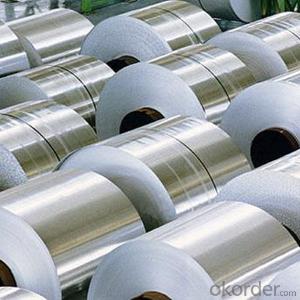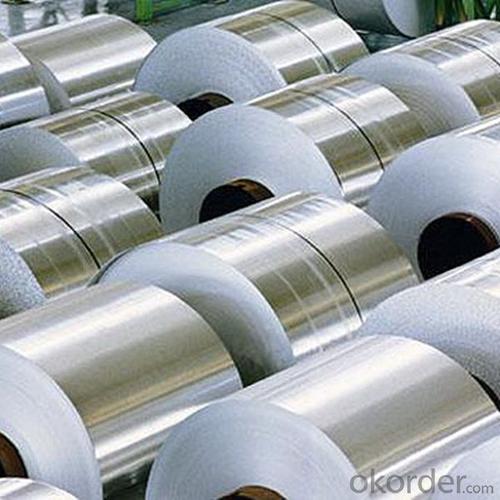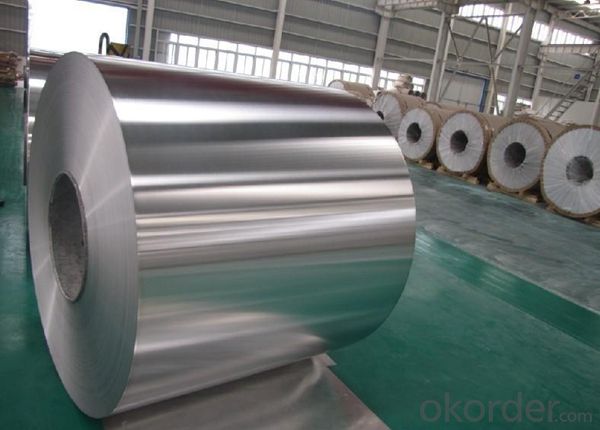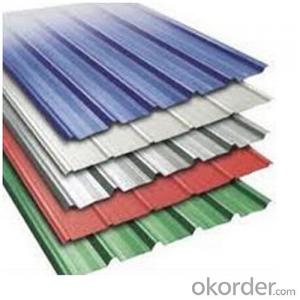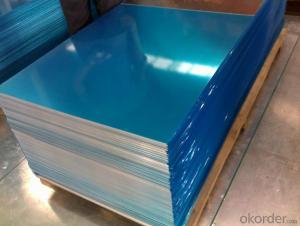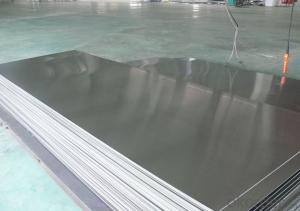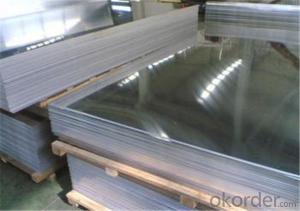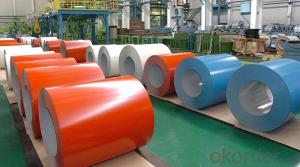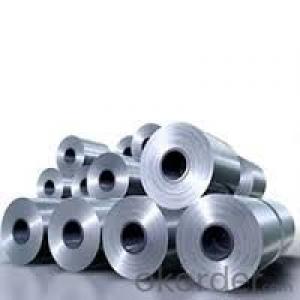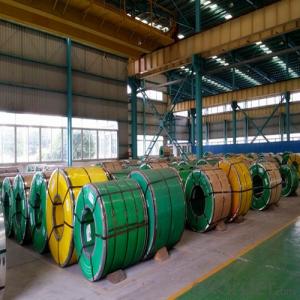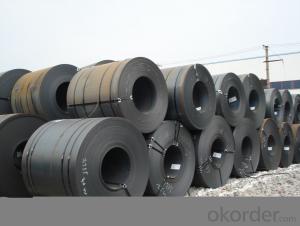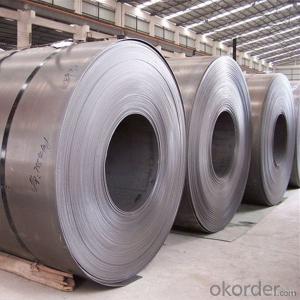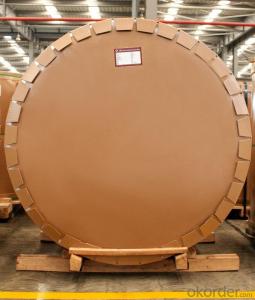Temco Aluminum Sheets - Hot Rolled Steel Coils
- Loading Port:
- Shanghai
- Payment Terms:
- TT OR LC
- Min Order Qty:
- 20 m.t.
- Supply Capability:
- 1000 m.t./month
OKorder Service Pledge
OKorder Financial Service
You Might Also Like
Specification
1. Specification of Steel Rolled Coil Hot Rolled Steel Coils
Material | Alloy Aluminum 6063,6061,6005 or customer nominated |
Temper | T3, T4, T5, T6 |
Surface | Anodize, electrophoresis, powder coating, PVDF coating, wood grain painting, matted, etc. |
Colour | Any colour based on Standard Germany RAL Mark |
Length | Coating 6.5 meters, Anodizing 6.5 meters, Mill finish 5 meters |
Press Machine | 500-4000 tons all together 64 press lines. |
Fabrication | 1. Windows and doors; 2. Drilling; 3. Bending; 4. Cutting; 5. etc. |
Certificate | ISO 9001 |
Moulding | 1. Using our moulds, no fee; |
2. Using customer drawing, opening mould, usually about 10~50 tons then the moulding can be refunded. | |
3. Mould cost is negotiable base on the order quantity | |
Capability | Annual output 100,000 tons |
2. Application of Steel Rolled Coil Hot Rolled Steel Coils
(1).Interior: wall cladding, ceilings, bathrooms, kitchens and balconies, shutters, doors...
(2).Exterior: wall cladding, facades, roofing, canopies, tunnels,column covers , renovations...
(3).Advertisement: display platforms, signboards, fascia, shop fronts...
3. Feature of Steel Rolled Coil Hot Rolled Steel Coils
*Such coil is specially designed to replace aluminum ingot, due to the high export tax of aluminum ingot, the coil has better price than ingot.
*This type of coil can fit customer's remelting furnace just like ingot, no need to make any change to the production line that was previously used for ingot. The standard coil size and weight is very suitable for the feed gate of furnace.
*This type of coil causes less material wastage than ingot when remelted.
*Our coil is made directly from ore, no need to go though the ingot making process, quality is much better than other suppliers who use ingot scrap to make coil.
Be free from Oil Stain, Dent, Inclusion, Scratches, Stain, Oxide Dicoloration, Breaks, Corrosion, Roll Marks, Dirt Streaks and other defect which will interfere with use
4. Certificate:
SGS and ROHS(if client request, paid by client), MTC(plant provided), Certificate of Origin(FORM A, FORM E, CO), Bureau Veritas and SGS (if client request, paid by client), CIQS certificate
5. Image of Steel Rolled Coil Hot Rolled Steel Coils
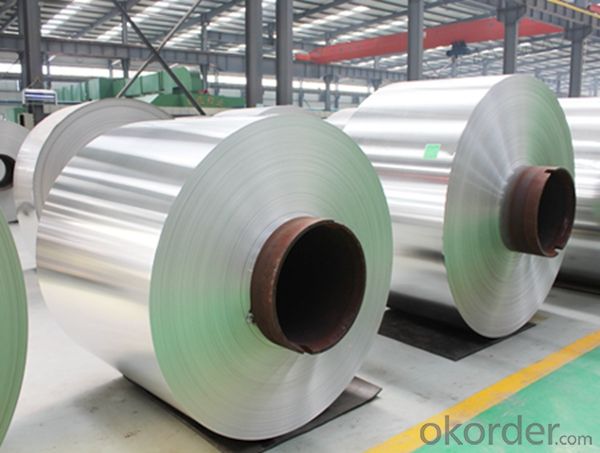
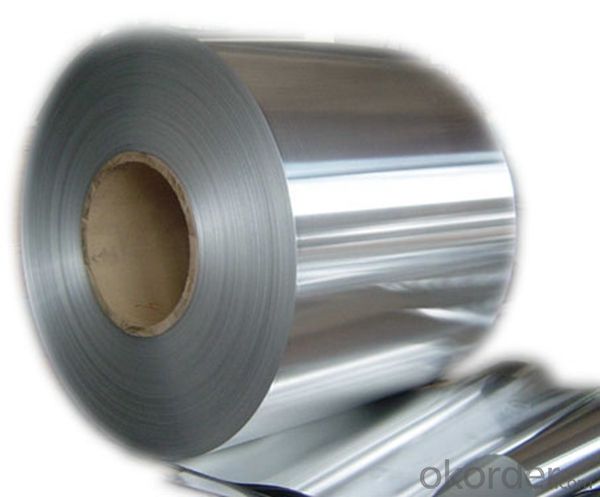
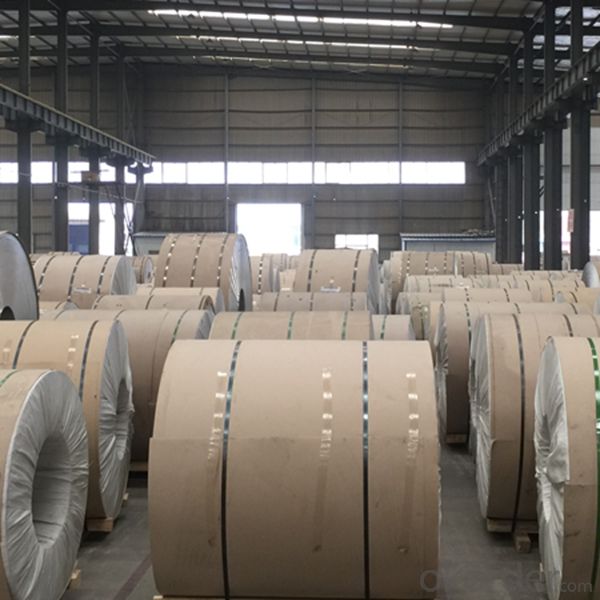
6. Package and shipping of Steel Rolled Coil Hot Rolled Steel Coils
eye to wall
eye to the wall
with wood pallet (wooded case also available)
7. FAQ
1) What is the delivery time?
Dpends on actual order, around 20 to 35 days
2)What is the QC system:
We have QC staff of 20 persons and advanced equipment, each production is with MTC traced from Aluminum ingot lot.
3) What market do you mainly sell to?
Australia, America, Asia, Middle East, Western Europe, Africa etc
- Q: Are the aluminum sheets suitable for manufacturing architectural roof systems?
- Indeed, architectural roof systems can be manufactured using aluminum sheets. Aluminum is widely favored as a roofing material due to its exceptional durability, lightweight composition, and resistance to corrosion. These remarkable attributes render it highly capable of enduring diverse weather conditions, such as strong winds, heavy rainfall, and snowfall. Moreover, aluminum can be easily manipulated and molded into various shapes, granting versatility in both design and installation. Furthermore, it is worth noting that aluminum is an eco-friendly choice, as it can be recycled. Ultimately, the utilization of aluminum sheets in the production of architectural roof systems presents a wide array of advantages and proves to be a suitable option for this purpose.
- Q: Can aluminum sheets be an alternative to glass in certain applications?
- Yes, aluminum sheets can be an alternative to glass in certain applications. Aluminum sheets offer several advantages over glass, making them a suitable choice in specific scenarios. Firstly, aluminum sheets are lightweight and durable, making them ideal for applications where weight is a concern, such as in aerospace or automotive industries. Glass, on the other hand, is relatively heavy and brittle, which can limit its use in certain environments. Additionally, aluminum sheets have excellent corrosion resistance, making them suitable for applications in marine or coastal environments where glass may deteriorate over time due to exposure to saltwater. Aluminum sheets also have a high strength-to-weight ratio, allowing for greater design flexibility and structural integrity compared to glass. Moreover, aluminum sheets can provide better thermal insulation properties compared to glass. They offer improved heat transfer resistance, which can be advantageous in applications where temperature control is crucial, such as in the construction industry. Furthermore, aluminum sheets can be more cost-effective than glass in certain applications. The production and installation costs of aluminum sheets are often lower compared to glass, making them a more economical choice for large-scale projects. However, it is important to note that glass still has its own unique properties and advantages that make it the preferred choice in many applications, such as its transparency and optical clarity. Glass also offers better resistance to scratches and chemical corrosion compared to aluminum sheets. In conclusion, while aluminum sheets can be a viable alternative to glass in certain applications due to their lightweight, durability, corrosion resistance, thermal insulation properties, and cost-effectiveness, the choice between the two materials ultimately depends on the specific requirements and constraints of the application in question.
- Q: Do 101 aluminum sheets have any specific anti-corrosion properties?
- Yes, 101 aluminum sheets possess specific anti-corrosion properties. This aluminum alloy contains a small amount of iron and silicon, which enhances its resistance to corrosion. Additionally, the formation of a protective oxide layer on the surface of 101 aluminum sheets provides extra protection against corrosion.
- Q: Are aluminum sheets conductive?
- Yes, aluminum sheets are conductive.
- Q: on the metal activity series, aluminum sits between magnesium and zinc, and all three sit above hydrogen. Explain why aluminum typically reacts only slowly with dilute acids even though both magnesium and zinc react rapidly
- Aluminum metal reacts with oxygen in the air to form a very tightly bonded aluminum oxide on its surface which slows the attack of acids trying to make contact with the aluminum atoms below the surface.
- Q: Explain how aluminum sheets can impact the longevity and robustness of a building's structure.
- <p>Aluminum sheets can significantly enhance the durability of a building due to their corrosion resistance, lightweight nature, and high strength-to-weight ratio. They are resistant to weathering, which protects the building from environmental damage, and they do not rust, reducing the need for maintenance and repair. Additionally, aluminum's malleability allows for the creation of various shapes and sizes, making it versatile for different architectural designs. Its recyclability also contributes to sustainability, reducing the overall environmental impact of construction.</p>
- Q: This question asks whether it is possible to utilize stamped or embossed aluminum sheets for a specific project.
- <p>Yes, you can use stamped or embossed aluminum sheets in your project. These sheets are known for their strength, durability, and lightweight properties, making them ideal for various applications such as construction, automotive, and aerospace. Stamped aluminum sheets are formed by pressing the material into a specific shape, while embossed sheets have a raised pattern. Both types offer design flexibility and can be customized to meet specific project requirements. Ensure that the aluminum sheets you select meet the necessary specifications for your project, such as thickness, strength, and finish.</p>
- Q: Can aluminum sheets be embossed?
- Yes, aluminum sheets can be embossed. Embossing is a process that creates a raised or sunken design on a material's surface. Aluminum is a versatile material that can be easily manipulated, including being embossed. Embossing aluminum sheets can be done using various methods, such as heat embossing or using embossing tools and machines. The embossing process adds texture and dimension to the aluminum sheets, enhancing their appearance and making them suitable for various applications such as decorative purposes, signage, nameplates, or even for adding texture to automotive or architectural accents.
- Q: What is the weight of aluminum sheets?
- The weight of aluminum sheets can vary depending on their thickness and dimensions. However, on average, aluminum sheets typically weigh around 2.7 grams per cubic centimeter.
- Q: Are 101 aluminum sheets suitable for aerospace tooling?
- 101 aluminum sheets are not appropriate for aerospace tooling due to their lack of high strength, stiffness, and heat resistance. Aerospace tooling necessitates materials like high-strength aluminum alloys (such as 7075 or 2024) or even specialized materials like titanium alloys for more demanding tasks. These materials possess superior mechanical properties and can endure the rigorous conditions encountered in aerospace manufacturing.
Send your message to us
Temco Aluminum Sheets - Hot Rolled Steel Coils
- Loading Port:
- Shanghai
- Payment Terms:
- TT OR LC
- Min Order Qty:
- 20 m.t.
- Supply Capability:
- 1000 m.t./month
OKorder Service Pledge
OKorder Financial Service
Similar products
Hot products
Hot Searches
Related keywords
